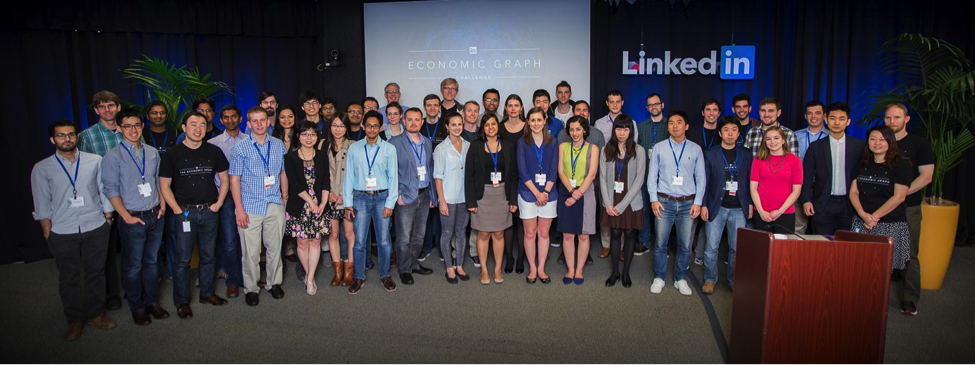Research for Economic Impact: Meeting the Winners of the LinkedIn Economic Graph Challenge
June 30, 2015
A few weeks ago, I had the pleasure of meeting the 11 teams who are conducting research as part of the LinkedIn Economic Graph Challenge. These teams are working with us to leverage the LinkedIn Economic Graph in order to uncover insights that will lead to creating economic opportunity. For the data-obsessed among us, this is an especially intriguing endeavor.
The winners of the Economic Graph Challenge were officially announced on May 11, and all the teams were invited to our Mountain View headquarters for trainings and orientation.

As I met with each team, the most notable and exciting aspect of this Challenge became clear: they are solving a broad range of topics - everything from gender bias in self-promotion and hiring, to the skills gap, to labor and talent migration, to access to labor markets and more. I’ve seen other competitions where many teams are all asked to tackle a problem that the company sponsor dictates; here, we have unleashed the creativity of some of the brightest minds in the country from a variety of different disciplines so that, ideally, we will have outstanding solutions to 11 different economic issues come December. I can’t wait to see what these teams produce - we already have one ready to file a patent!
I was also extremely energized by the LinkedIn employee mentors. This group volunteered to mentor one of the 11 winning teams as part of their day-to-day work. And similar to the teams, the mentors were able to choose a project that was of particular interest to them. The passion on display as the mentors and teams become fast collaborators was wonderful to see. Plus, having LinkedIn employees in constant contact with the teams adds a layer of oversight to our member data that is extremely important to all of us involved.
While all the mentors have their own projects at LinkedIn, the opportunity to work with these teams provides our employees a chance to collaborate with the brightest minds in academia. While Michael Conover spends much of his time building machine learning technologies that leverage the behavior and relationships of hundreds of millions of professionals on LinkedIn, he’s also now exploring large-scale evolutions of industries and emerging skills with a team from Indiana University. Natalie Han normally provides sales intelligence and scalable data solution for LinkedIn’s Global Sales Organization. She’s now also helping quantify the value of coworker connections and its impact on economic performance with her team from University of Pennsylvania. Dacheng Zhao typically prototypes new products using Linkedin’s wealth of data, though now he’s also working on increasing the transparency and efficiency of both job searching and recruiting with his team from Duke University.
As a fellow data scientist, I’m fascinated by the wealth of information available through the Economic Graph. As a fellow human being, I’m excited to find solutions to big problems that affect real people all over the world. Even working within the limitations of our data privacy rules, I look forward to seeing what these 11 teams of experts and their LinkedIn employee mentors will uncover.